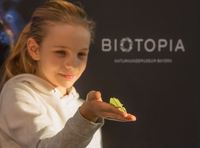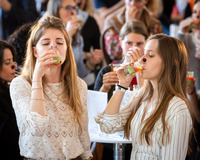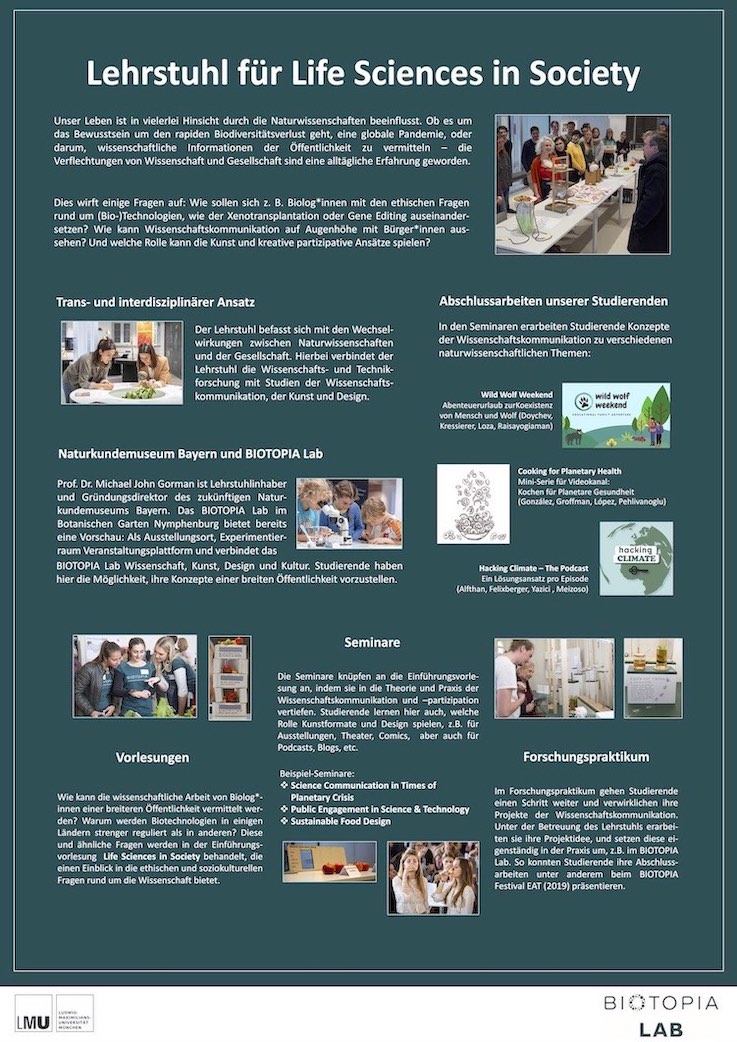About
The Chair of Life Sciences in Society (LSS)
In contemporary times, almost any aspect of life is impacted by science. Whether it is the awareness of biodiversity loss, or conveying scientific information in a diverse media landscape: new scientific discoveries and technological innovations continuously widen our understanding of life, and with it how life sciences are embedded in societal institutions and cultural norms. This raises a number of questions: how should biologists engage with the ethical and moral implications of new (bio-)technologies, such as xenotransplantation or gene editing? What do scientists need to consider when doing science communication and engaging with heterogeneous publics?



Copyright: Robert Gongol; Andreas Heddergott/Naturkundemuseum - BIOTOPIA Lab
An Inter- and Transdisciplinary Approach
The Chair in Life Sciences in Society (LSS) tackles these and similar questions through an inter- and transdisciplinary approach to life sciences and society. It combines science and technology studies (STS) and science communication studies (SCS) with environmental studies, history and philosophy of science, arts, museum and curatorial studies, and other related fields. In lectures, seminars, and research courses, students are provided conceptual tools for understanding the interrelationships between science and society, and for designing prototype and real-life participation formats through public engagement and science communication methods.

BIOTOPIA Lab and Naturkundemuseum Bayern
The Chair is at the interface of the LMU Biozentrum and the broader public, seeking to facilitate dialogue in the form of programming, exhibitions and events. The public facing side of the Chair is strongly linked to the Naturkundemuseum Bayern and its BIOTOPIA Lab. This Lab offers an exhibition space, event platform and experimental workshop hub at the interface of science, art, design and culture.
The Naturkundemuseum Bayern with its BIOTOPIA Lab is the major new planned life sciences and environment museum for Bavaria, being developed adjacent to Schloss Nymphenburg in Munich. It will expand on and replace the existing Museum Mensch und Natur and has the mission to explore, question and reconfigure the relationships between humans and other species.

